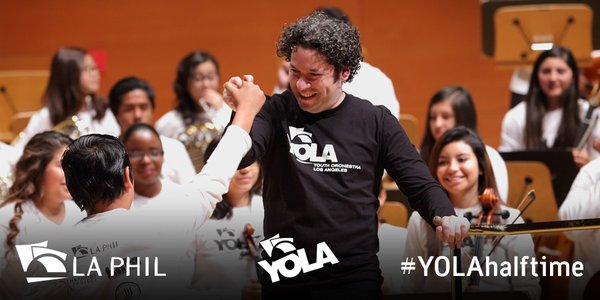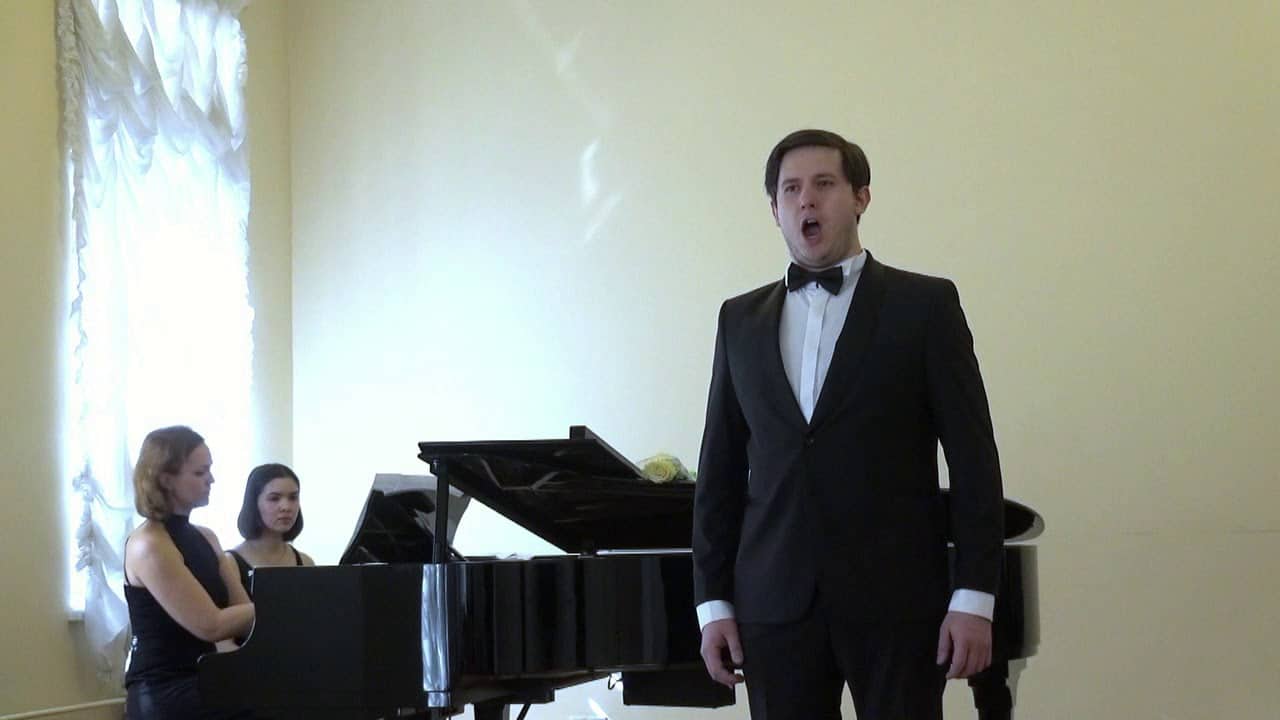LA Phil commissions 50 works for its centennial
mainGustavo Dudamel has announced that his orchestra will present 50 commissioned works, most of them world premieres, in its 2018-19 season, marking the orchestra’s 100th birthday.
Among the composers involved are John Adams, Julia Adolphe, Billy Childs, Unsuk Chin, Natacha Diels, Ashley Fure, Philip Glass, Adolphus Hailstork, Vijay Iyer, Andrew Norman and Steve Reich.
The LA Phil has also commissioned Frank Gehry to design a permanent YOLA Center in Inglewood, for us by its outreach program among diverse communities in the city.






Interesting! However it looks like the full list of 50 is not available to the public yet. Looking forward to see what other composers get commissioned.
Or as Muti would rightly put it: another 50 new works to be played just once.
It will surely make today’s coterie of music critics at the major news outlets like the LA Times and the NY Times jizz in their pants, but one gets the sense that newness is celebrated for newness’es sake without regard to quality.
All orchestras celebrating their anniversaries would do better to play, for instance for the LA Phil, The Best 100 Works of the Last 100 Years.
Yes, there must be a judgment about quality, and quality that stands the test of time. We need to celebrate good works that have been written in the recent past rather than commission new works just because they are brand new with the shiny plastic wrapper still attached.
Here’s my Top 100 compositions of the Last 100 Years: all of Stravinsky, all of Shostakovich, all of Bernstein…
Ha ha, just kidding, of course there’ll be biases for the household names (who happen to be Dead White Males) who are already played, but music lovers should not shrink away from judgement
Ah yes, good old world premieres- I think audiences are wise to that one now. How about we change the spin and start promoting them as ‘last chance to see’?
Bravo!!!
I nominate you for Principal, Marketing Dept!
Does anyone or anything keep track of the number of professional performances, in venues of x, y & z capacities, or which advertise and charge money, I don’t know how you screen out the tree-falling-in-the-forest-that-no-one-hears type performances, of yr masterworks of the 2nd Viennese School and whatever we call the various schools, non-schools & Tendencies that followed? And what percentage of these are connected to music schools teaching? What percentage one-time Happenings?
So that we could get a sense of that public, if it exists.
I think a minor perhaps but still real factor in audience decline for classical music has been the unceasing attempt by living composers to tear it down, and to subject its audience to their own works in the name of engaging with “the present.”
Far as I’m concerned “contemporary music” is The Beatles, Muddy Waters, Randy Newman …
+100
I think you are onto something here, but 100 years is too long. I, for one, would love to hear a programme of works from the last 30-40 years that have been played a few times and have the potential to join the mainstream repertoire. I think a key problem, as others have said, is the large number of pieces that are played only once and then consigned to oblivion. If you are going to invest in new pieces, then invest enough time and energy to see whether the piece will succeed or fail in creating an audience for it.
Betty Freeman got there first with your idea. I heard her on the radio years ago, reviewing her career: First we had to keep him (Cage) alive; then we had to get him composing; then it was longer pieces; then it was money for the premier; then we realized the 2nd performance was the key… If she were alive today she might be talking of underwriting the 10th — or the 20th — with equal giddy enthusiasm.
Sometimes heirs feeding on copyrights will keep a composer alive. Every now and then a powerful conductor sticks in an oar as champion. And — ever so occasionally audiences will keep a composer alive, as used to happen more when composers actually wrote for audiences rather than committees.
I had a sensational, explosive comment in preparation, but Sally advised against it.
Congratulations to the LAPhil!
Be optimistic – Here is a partial list of compositions commissioned by the Boston Symphony for its 50th:
Aaron Copland – Symphonic Ode
Howard Hanson – Symphony No. 2, Romantic
Paul Hindemith – Konzertmusik, for string and brass instruments
Arthur Honegger – Symphony for Orchestra
Serge Prokofiev – Symphony No. 4
Ottorino Respighi – Metamorphoseon modi XII
Igor Stravinsky – Symphonie de Psaumes
The BSO seemed to have a magic touch with its commissions and premieres (Bartok, Martinu, and Bax come immediately to mind). It’s difficult to imagine LA coming up with even two or three works that are as timeless as the above partial BSO list which stands as something of the nature of being struck by lightning.
Agree on the difference; you can add Gershwin and Prokofiev (4th Symphony, original version, though a quarrel over money resulted in a downgrade from the term “Commission”). This was all Koussevitsky, whose relationships with Martinu and Prokofiev were long-standing and who could do as he pleased in Boston.
(After Bartok’s death Mrs. B complained bitterly to Mrs. Martinu about Martinu’s disproportionate share of Boston largesse. Charlotte replied that Bohus was a great Bartok admirer and always regretted he didn’t get more attention in the US; the couples lived two blocks from each other in midtown Manhattan at war’s end.)
These commissions, BTW, were only worth about $1000 for a symphony, maybe $20,000 in today’s money, which would be what, half of today’s going rate? — though this 20 is the relative-Nobody rate. They all needed teaching jobs, commissions were gravy.
Anyway I share your sense of astonishment at the downward slide. When Clara Schumann dared to put on an “all contemporary” recital program (not that often, she was cautious!) the bill would have read Chopin, Mendelssohn, Schumann and Brahms, each of whom knew and approved of her interpretation of their work, to put it mildly. She could have added others to that list, including even Lizst, though she refused always to perform a single note of his.